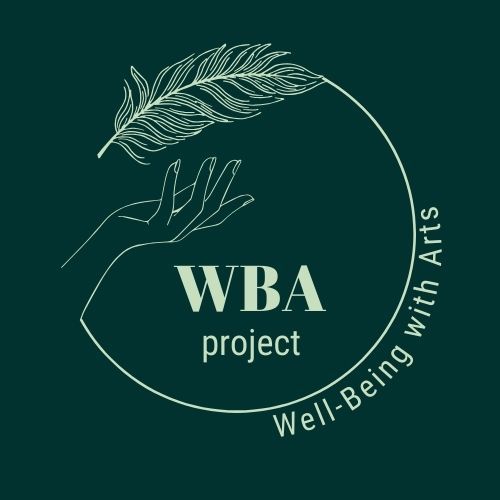
Kyushu University, Institute for Asian and Oceanian Studies (Q-AOS), Fukuoka, Japan
The Well-Being with Arts (WBA) research team calls for papers on the following topic :
Body-mind Interactions in Arts, Health, Literatures and Sciences:
Asian & Indo-Oceanian Perspectives
Asia Week, 4th-8th November 2024, Kyushu University
You will find the complete CFP on the research module's website :
—
In line with the WBA project, the Body-mind Interactions symposium will be devoted to two main transversal and intersecting research axes:
1) The first research axis will investigate the field of body-mind practices and of holistic theories (especially Asian and Indo-Oceanian, but we also consider comparative approaches with other regions in the world), from both a quantitative and qualitative viewpoint. Such practices and theories insist on the fact that the audience may benefit from a specific atmosphere, an imaginative experience and an emotional response, reconnecting body and mind as a whole, and fostering a sense of being immersed in (engagement level) and/or transcending the here and now. In addition, they show a considerable degree of cross-cultural influences and circulations, and their actual and potential impact on the global well-being should not be underestimated by the research community. Indeed, the World Health Organization (WHO) indicates that very little has been made in a cross-cultural direction, despite numerous studies (more than 3000 in the last two decades in Europe) on the role of arts and holistic practices as a way to prevent, to manage and to treat for better health and well-being, e.g. regarding the effects of stress and anxiety (Gard et al., 2014; Sharma & Rush, 2014; Cahn et al., 2017; Fancourt & Finn, 2019; Budd, 2020).
2) The second research axis will address the field of arts, either material and/or experiential, transcending cultural boundaries and taken in the broad sense of performance, sound, text, visual arts, arts of balance, Ways. The aim is to investigate how the experience of art – especially considering its performative and transformative effects – contributes to increasing well-being within a specific social, material and/or natural environment. The symposium will encourage a study of these kinds of artworks – from literature to music to performance – aiming at creating new “forms of life” (Leibovici, 2012), sometimes able to trigger a “re-enchantment of the world” through the “transformative potential of performance” and its power to convert “binary oppositions” into “dynamic gradations” and “liminal experiences” (Fischer-Lichte, 2008, pp. 190-204). The performative power of such artworks may also highlight and enhance our embodied experience of space, tying together perception, cognition and the experience of the ‘environment’ as a rich and dynamic circulation of diverse and interrelated processes (Goatly, 2021).
In order to submit a proposal, please consider the following topics of interest:
- Empirical investigations on the body-mind interactions based on cognitive, psychological, psychiatric, neuroscientific, biomedical disciplines, but also on sport and health disciplines. We encourage a transversal and holistic approach to shed light on the links between holistic practices, their ‘informal’ theories, and their measurable effects on the practitioner.
- Interdisciplinary research on the therapeutic values of arts and holistic practices, especially based on specific case studies possibly carried out within the Asian & Indo-Oceanian cultural context, or with a comparative approach.
- Anthropological/sociological/historical research on relevant holistic practices, such as yoga, meditation and kikô (Okinawan Qigong). Insights on the cross-cultural community engagement that these practices may foster are particularly welcomed, together with a focus on the cultural circulations, connections and influences between Asia, Indo-Oceania and other regions in the world.
- Aesthetical reflections or case studies that foreground the performative and “transformative power of art” (Fischer-Lichte, 2018, p. 2), with a special concern for multimodality. Whether literature, music, performance or another type of art, the focus should be on the power of art to trigger an event that engages and re-orients the audience’s body-mind as a whole, both individually and collectively.
- Specific research on the literary text considered as an interplay of fictional and performative elements. Reception studies, stylistic, cognitive and embodied approaches are encouraged, in order to investigate how the reading experience is modelled on and affects the body-mind relationship, eventually augmenting our experience of the world.
—
To apply for a presentation, please send via email a single pdf file in English including a short abstract of your paper proposal (max 200 words) and an academic bio (max 100 words) that explains your scholarly background. The envisioned length of papers is 20 minutes, followed by a discussion. The preferred language is English, but papers delivered in Japanese and French might also be accepted. The event is planned on-site; however, online presentation and attendance will also be possible. Participation in this conference is free. We plan to publish the proceedings in a scientific journal with peer-review.
Please email your proposal to both of the following addresses:
clonts.charlene.248@m.kyushu-u.ac.jp
—
Proposal deadline: June 30th
Acceptance notification after peer-review: July 15th
2024 Symposium: November 4th-8th
Article submission deadline: January 30th 2025
—
WBA project website : https://wbaresearchproject.wordpress.com/
Kyushu University Q-AOS research clusters : https://q-aos.kyushu-u.ac.jp/en/about-cluster/